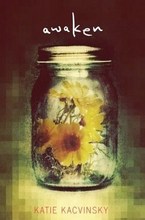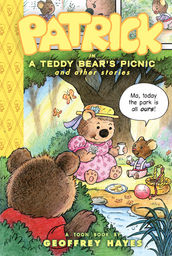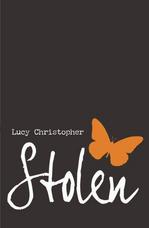
Awaken by Kate Kacvinsky
Houghton Mifflin Harcourt, 2011
It is the year 2060, and Madeline is seventeen and in her final year of Digital School (DS). In fact, her father is the creator of DS, which allows all American children to have free education via computers in the comfort of their own homes, and even adults socialize and work entirely online. Madeline's father doesn't make her life easy due to an anti-DS incident that happened when Madeline was fifteen, so she has a probation officer and is under constant surveillance. When she meets the mysterious Justin at an offline study session, she has no idea how much the life she takes for granted is about to flip upside down.
I had a great time reading Awaken. For one thing, I have a particular weakness for dystopian literature so this was right up my alley. What I found interesting was how similar Kacvinsky's imagining of 2060 is to today's world and that it initially threw me off a bit. I'm so accustomed to scenarios set 50 years into the future being full of flying cars (which actually show up but as a surprising invention and not a daily occurrence) and helpful household robots that the subtlety of Kacvinsky's vision was initially a bit of a let-down. However, it grew on me and is ultimately far more realistic and made the cultural developments that much more stark. It also allowed for one my favourite scenes in the book, in which Madeline encounters real grass and trees for the first time in her life.
Madeline has many firsts in Awaken, including first offline study group, first ride in a car, first time hearing live music, and first love. The vast majority of these firsts - if not all of them - are brought about by Justin, with whom Madeline is infatuated from the beginning. Madeline's inner dialogue about his friendship is entertaining and ratchets up the sexual tension, and combining that with watching Madeline and Justin warily circle each other and do their best not to succumb to their feelings made this one of the steamiest dystopian novels I can recall reading. As the Brits say, "Phwoar!"
Awaken is populated with many compelling characters. Madeline's mother makes a strong early appearance and, while she doesn't play a large role, is an effective presence with her values that lean strongly toward the pre-digital. By contrast, Madeline's father plays his cards very close to his chest and is deeply invested in his work, and his relationship with Madeline is rocky at best. One of my favourite characters was Clare, a friend of Justin's who adds much-needed lightness to the proceedings, as does Justin's monumentally charming family.
More than just a romance in a futuristic world, Awaken presents a vision of the future that may well come to pass and I will be handing it to fans of Uglies and Feed without hesitation.
**Electronic galley provided by publisher via netGalley.
Houghton Mifflin Harcourt, 2011
It is the year 2060, and Madeline is seventeen and in her final year of Digital School (DS). In fact, her father is the creator of DS, which allows all American children to have free education via computers in the comfort of their own homes, and even adults socialize and work entirely online. Madeline's father doesn't make her life easy due to an anti-DS incident that happened when Madeline was fifteen, so she has a probation officer and is under constant surveillance. When she meets the mysterious Justin at an offline study session, she has no idea how much the life she takes for granted is about to flip upside down.
I had a great time reading Awaken. For one thing, I have a particular weakness for dystopian literature so this was right up my alley. What I found interesting was how similar Kacvinsky's imagining of 2060 is to today's world and that it initially threw me off a bit. I'm so accustomed to scenarios set 50 years into the future being full of flying cars (which actually show up but as a surprising invention and not a daily occurrence) and helpful household robots that the subtlety of Kacvinsky's vision was initially a bit of a let-down. However, it grew on me and is ultimately far more realistic and made the cultural developments that much more stark. It also allowed for one my favourite scenes in the book, in which Madeline encounters real grass and trees for the first time in her life.
Madeline has many firsts in Awaken, including first offline study group, first ride in a car, first time hearing live music, and first love. The vast majority of these firsts - if not all of them - are brought about by Justin, with whom Madeline is infatuated from the beginning. Madeline's inner dialogue about his friendship is entertaining and ratchets up the sexual tension, and combining that with watching Madeline and Justin warily circle each other and do their best not to succumb to their feelings made this one of the steamiest dystopian novels I can recall reading. As the Brits say, "Phwoar!"
Awaken is populated with many compelling characters. Madeline's mother makes a strong early appearance and, while she doesn't play a large role, is an effective presence with her values that lean strongly toward the pre-digital. By contrast, Madeline's father plays his cards very close to his chest and is deeply invested in his work, and his relationship with Madeline is rocky at best. One of my favourite characters was Clare, a friend of Justin's who adds much-needed lightness to the proceedings, as does Justin's monumentally charming family.
More than just a romance in a futuristic world, Awaken presents a vision of the future that may well come to pass and I will be handing it to fans of Uglies and Feed without hesitation.
**Electronic galley provided by publisher via netGalley.


 RSS Feed
RSS Feed